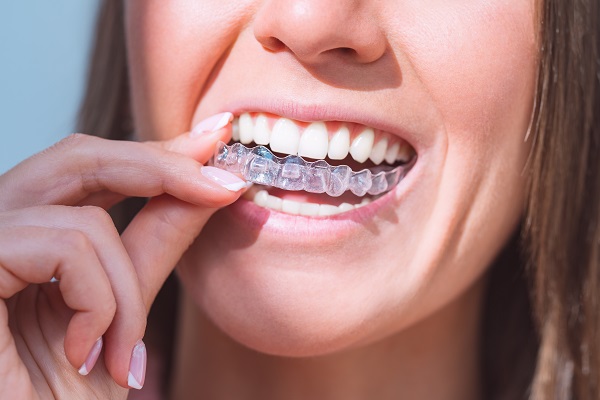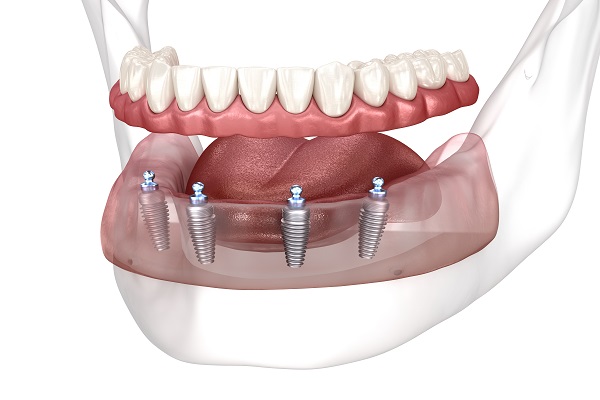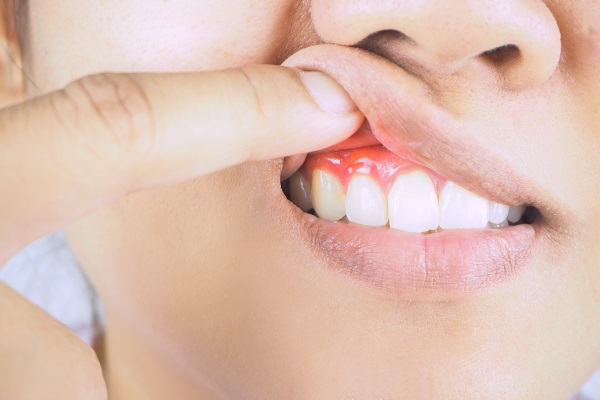Invisalign Treatment from a General Dentist for Alignment or Crowding Issues

Invisalign® is one of the most common treatments used to address teeth straightening problems. General dentists recommend Invisalign® quite frequently due to the many associated benefits and ease of the treatment process.
One thing to know about Invisalign® is that it cannot address all orthodontic issues. However, it is a great option for misalignments and crowding, both of which can be detrimental to one's oral health and self-confidence. Keep reading to find out what Invisalign® can do.
Treat crowding and misalignments with Invisalign®
The following review highlights what Invisalign® can do for those who have crowded teeth or alignment issues. This information may be helpful to those looking into their treatment options.
The problem with crowding and alignment issues
Crowding can be detrimental to one's oral health because it can create hard-to-reach spaces between teeth. These spaces become susceptible to left behind food. When food gets stuck in these spaces, the result can be bacterial growth because it may be hard for a toothbrush or floss to access. Over time, this bacteria turns into plaque, which leads to tartar. When tartar does not get removed, serious restorative care will be required.
Misalignments of the teeth or arch can also be problematic. One's bite may be affected, which can make eating difficult. Additionally, over time, a misaligned jaw can lead to extra wear on certain teeth. Decay, chronic pain, or a TMJ disorder may occur, all of which can lead to headaches and malfunction.
What Invisalign® can do
Invisalign® can straighten out crooked teeth; however, an extraction may be necessary first. If the reason for the crowding is that there are too many teeth, an extraction may be required. If crowding occurs due to crookedness then Invisalign® treatment can likely start right away. Once crowded teeth are straightened out and evenly aligned, there will be fewer hard-to-reach areas, if none at all. One's oral hygiene routine should be able to be improved, which will in turn help encourage better oral health.
As far as misalignments, Invisalign® is a good option for cases that do not involve a serious jaw issue. When the teeth are simply misaligned, the aligners can significantly improve how they sit in the arch. However, jaw misalignments may require serious orthodontic attention such as braces or headgear.
Ultimately, Invisalign® can improve the health of the teeth, which will also lead to healthier gums, a stronger jaw, and a better-looking smile. A better-looking smile will improve confidence and self-esteem!
Find out more from a general dentist
When needing Invisalign® treatment, the best thing to do is start by consulting with a general dentist. The consultation allows the dentist to evaluate the teeth to determine the timeline and other important factors, such as additions to treatment. Additionally, the general dentist can answer questions or go over any existing concerns. To learn more about Invisalign® and what is involved, reach out today. Additionally, we can get you scheduled for an appointment.
Request an appointment here: https://mmfamilydentistry.com or call MM Family Dentistry at (512) 477-9775 for an appointment in our Austin office.
Check out what others are saying about our dental services on Yelp: Invisalign in Austin, TX.
Recent Posts
While researching options for teeth straightening, many patients consider the use of clear braces instead of traditional metal braces. There are pros and cons to each option. Before making a decision, learning more about the differences between clear braces options and traditional teeth straightening can help patients decide which route works for their circumstances.Traditional metal…
When it comes to straightening crooked teeth, Invisalign® for teens is an excellent option for many families. This system is appealing due to its numerous benefits:Shorter treatment timelinesDiscreet appearanceLess discomfortFewer dietary restrictionsAs with any type of alignment system, teenagers need guidance when managing the new responsibility of wearing and caring for Invisalign® trays. These tips…
Considering All-on-4®? Also known as implant-supported dentures, this tooth replacement option is one that combines the use of dental implants with dentures. Most are familiar with dentures and how bulky they can be within the mouth. It is easy to shy away from dentures due to the awkwardness of a sliding oral appliance. On the…
Gum disease is often hard to avoid; however, once it is detected, patients can immediately visit their general dentist for a diagnosis and treatment plan. In order for it to be detected, the dentist will have to rely on any symptoms or signs that indicate a problem. Ready to learn more about the signs?Sometimes when…


